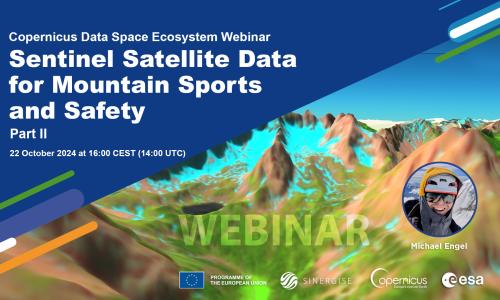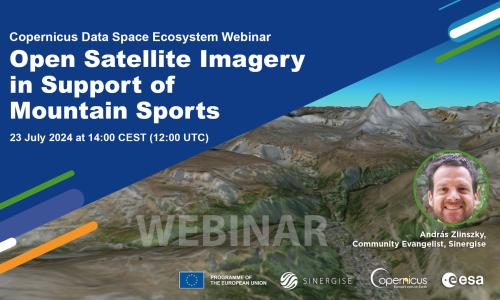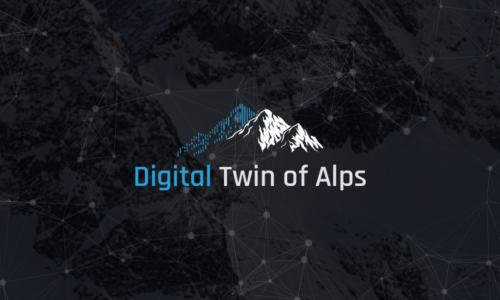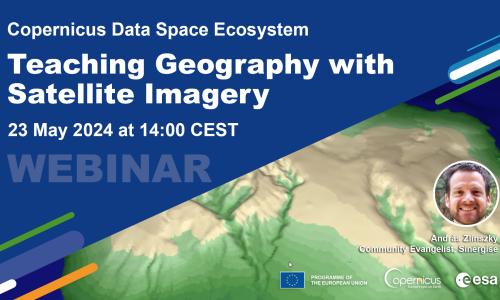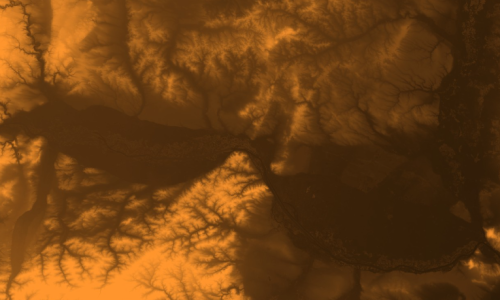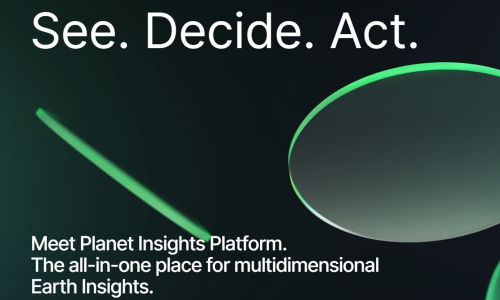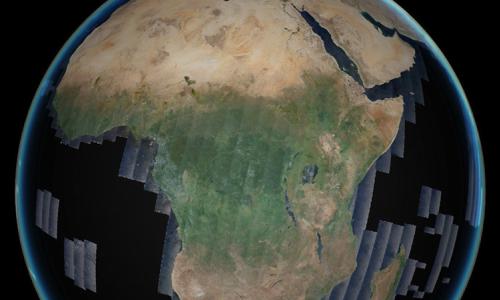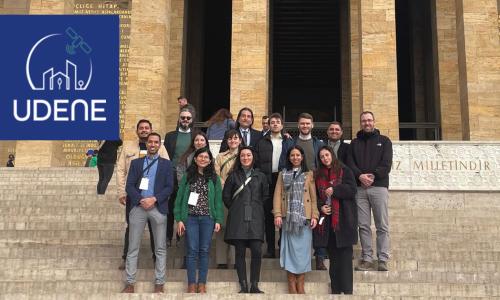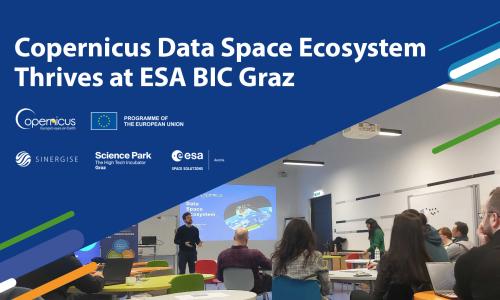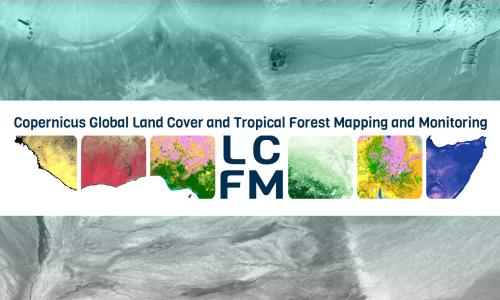Join the next Copernicus Data Space Ecosystem webinar on 22 October 2024 at 16:00 CEST (14:00 UTC). Our special guest Michael Engel will use examples from his experience as a mountaineer and tour guide, and explain how remote sensing data can significantly enhance safety in mountaineering and how simple web applications can already offer substantial benefits in hiking area management.
News
Have you ever planned your mountain trip using the latest satellite images? Or shared your route with friends overlaid on a satellite photo? Have you thought of embedding the latest satellite imagery in the smartphone outdoor mapping application you use? We hope to show you how all this can be done, and why it can help you stay safe and enjoy the adventure even more. Join our next Copernicus Data Space Ecosystem webinar on 23 July at 14:00 CEST.
A new addition to the collection of analysis tools for Terrain and Glacier motion services is now available through the GEP platform. A detailed time-series viewer was implemented for the datasets available in the Digital Twin of Alps (DTA) platform, making it now possible to plot displacement time-series, mean velocity and elevation along transects, and also to change the scale and filter out points based on their velocity.
Join us for our upcoming Copernicus Data Space Ecosystem webinar on 23 May 2024 at 14:00 CEST (12:00 UTC) where we will demonstrate how to use satellite imagery for geography education! We'll show you how to search, explore and navigate satellite imagery to explain geographic patterns and processes. Our limited ability to understand scale is often a barrier to understanding what forms the Earth system. We can only understand what we see with our own eyes, but the processes that create landscapes are often hidden.
We are participating at the largest Geoscience conference in Europe, with a series of contributions focusing on the Copernicus Data Space Ecosystem. We will provide information in various formats from hands-on tutorials to conference presentations, for both beginners and advanced scientists. See the list of opportunities to meet with us!
A powerful tooling for unlocking Earth observation data
Planet Labs PBC has just launched the Planet Insights Platform, all-in-one destination for creating multidimensional Earth insights. This platform represents an important milestone as it brings together Planet’s product portfolio with the power of the Sentinel Hub, following the last year's joining forces. By combining analysis-ready Earth data products with cloud-based analytics, you can efficiently analyze, stream and distribute data at scale. This launch enables governments and organizations worldwide to unlock Earth observation data and make informed decisions.
Many applications require seamless, unobscured, high-quality images, and are limited by swath width or cloud cover in the Sentinel-2 datasets. The observation of landscapes, the creation of large-scale open maps, but also agricultural and environmental monitoring benefit from Level 3 analysis-ready data.
From 12th to 14th of February, UDENE consortium met in Ankara, Turkey, to kick-off this new project. Funded through the HORIZON Europe 2022 Space calls managed by EU Agency for the Space Programme (EUSPA); the project will last until January 2026. UDENE, standing for Urban Development Explorations Using Natural Experiments, gathers 9 partners, from 6 countries including Tunisia, Turkey, Serbia, Italy, France, and Slovenia, to build sustainable urban environments addressing the challenges posed by increasing urbanisation and the effects of climate change.
Last Thursday at Science Park Graz, together with ESA BIC, we presented how the Copernicus Data Space Ecosystem can help your business. Among all potential users of Copernicus Data Space Ecosystem, startups have a special place. The Data Space was built to support efficient upscaling of remote sensing solutions, which is exactly what most startups need. The Business Incubation Centres (BIC) of the European Space Agency (ESA) help startups in the space sector develop their product while connecting them to a network of potential business partners.
In November 2023, the European Commission's Joint Research Centre (JRC) and a VITO-led consortium signed a four-year framework contract to implement the new Copernicus Global Land Cover and Tropical Forest Mapping and Monitoring service (LCFM) to continue and enhance the 100m Copernicus Global Land Cover layers and provide a dynamic global land cover service at 10m resolution for the years 2020-2026. We are pleased to have been subcontracted to implement the new service.

